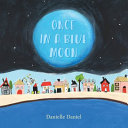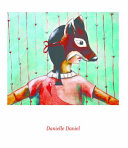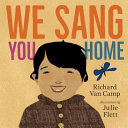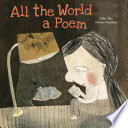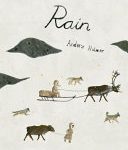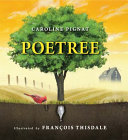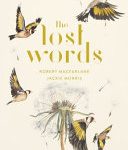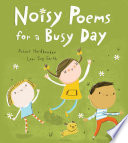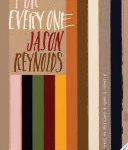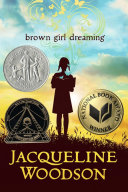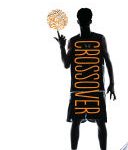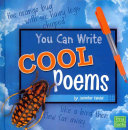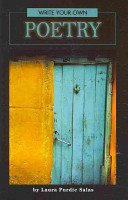Listed below are selected teacher resources, picture books, poetry for older readers, and non-fiction related to poetry.
Teacher Resources
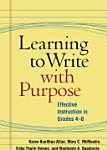 Learning to write with purpose: Effective instruction in grades 4-8
Learning to write with purpose: Effective instruction in grades 4-8
by Karen Kuelthau Allan et al.
Grades: 4-8
Communicating ideas and information is what makes writing meaningful, yet many students write without considering the aims of their writing or the needs of their readers. This book shares techniques to promote the skills and strategies need to write and revise effectively in a range of genres, including persuasive, expository and procedural writing; narratives; and poetry.
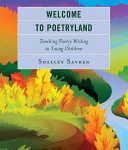 Welcome to Poetryland: Teaching poetry writing to young children
Welcome to Poetryland: Teaching poetry writing to young children
by Shelly Savren
Grades: K-6
The author begins each chapter in this book with a student quote and an original poem, followed by stories of working with that particular group. She provides 38 lesson plans, complete with introductions of poetic concepts, model poems by professionals, open-ended writing assignments, methods for sharing and critiquing, and one or two student poems. Designed for use in a classroom, this book also features 23 additional poetry workshop ideas.
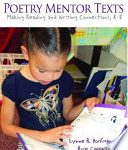 Poetry mentor texts: Making reading and writing connections, K-8
Poetry mentor texts: Making reading and writing connections, K-8
by Lynne R. Dorfman and Rose Cappelli
Grades: K-8
This book explores a variety of poetic forms, including poems that inspire response, list poems, acrostic poems, persona poems, and poems for two voices. Each of these poetic forms has its own chapter featuring five poems with applications for both reading and writing classrooms. Reading connections present skills and strategies to help students build fluency, vocabulary, comprehension, phonemic awareness, and phonics. Writing connections help students discover their own voices and grow as poets and wordsmiths.
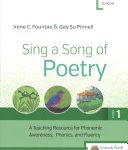 Sing a song of poetry: A teaching resource for phonemic awareness, phonics, and fluency, Grade 2
Sing a song of poetry: A teaching resource for phonemic awareness, phonics, and fluency, Grade 2
by Irene C. Fountas and Gay Su Pinnell
Grades: 2
The 225 poems in this book immerse students in rich, rhythmical language, providing age appropriate opportunities to enjoy language through shared reading, stimulate oral language development, connect words, and much more.
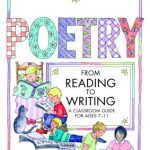 Poetry – From reading to writing: A classroom guide for ages 7-11
Poetry – From reading to writing: A classroom guide for ages 7-11
by Robert Hull
Grades: 2-6
The author uses poems from a range of authors to show how creative readings of poems can spark a child’s imagination and lead to original writing. Students are encouraged to write different forms of poetry, including rhyming and non-rhyming poems, haiku, free verse, narrative poems, and more. (E-book only)
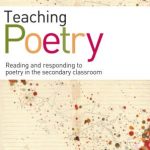 Teaching poetry: Reading and responding to poetry in the secondary classroom
Teaching poetry: Reading and responding to poetry in the secondary classroom
by Amanda Naylor and Audrey B. Wood
Grades: 9-12
This guide helps teachers support pupils as they access, understand, discuss and enjoy classic and contemporary poetry. The authors provide an introduction to the major ideas and theory about teaching poetry, cover the key genres and periods through both well-known and less-well-known poems, and illustrate good practice for every approach covered through case studies of theory and ideas in action in the classroom. (E-book only)
 The poetry experience: Choosing and using poetry in the classroom
The poetry experience: Choosing and using poetry in the classroom
by Sheree Fitch and Larry Swartz
Grades: K-12
This book explores all aspects of poetry — from guidelines and an overview of poetic forms to the Top Ten lists of various poetry favorites. Handy reproducible masters are also provided which include a poetry timetable, ten questions to ask about any poem, an observation checklist for teachers, and a personal poetry inventory for students. The authors – poets themselves – focus on both reading and writing poetry, and on experiencing poetry both on the page and read aloud.
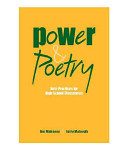 Power & poetry: Best practices for high school classrooms
Power & poetry: Best practices for high school classrooms
by Jim Mahoney and Jerry Matovcik
Grades: 9-12
The authors discard the scary parts of teaching poems – the symbolism and the technical language – and instead focus on poetry as a natural expression of individual curiosity, emotion, and observation. The book includes ideas for weaving poetry into lesson planning, including instructional suggestions for helping students understand poems and generate content through journaling; studying and writing poems intertextually; and creating prompts that engage student poets.
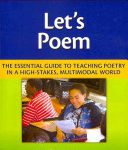 Let’s poem: The essential guide to teaching poetry in a high-stakes, multimodal world
Let’s poem: The essential guide to teaching poetry in a high-stakes, multimodal world
by Mark Dressman
Grades: 7-12
This guide presents multiple approaches to teaching poetry at the middle and high school levels. The author explores how to preserve the fun of poetry while also developing critical writing and analysis skills, how to introduce students to the basic formal elements of classic and contemporary poetry, and how to expand their repertoires through the use of digital technology and the Internet.
Picture Books
by Danielle Daniel
Each of these short poems describes an experience that turns an ordinary day into a special one, like seeing a double rainbow or a shooting star, or even just a family of ducks waddling across the road.
by Danielle Daniel
In this introduction to the Anishinaabe tradition of totem animals, young children explain why they identify with different creatures such as a deer, beaver or moose. Illustrations show the children wearing masks representing their chosen animal, while the few lines of text on each page work as a series of simple poems throughout the book. Also available in French.
written by Richard van Camp, illustrated by Julie Flett
In this lyrical board book, gentle rhythmic text captures the wonder new parents feel as they welcome baby into the world, in a celebration of the bond between parent and child.
written by Gilles Tibo, illustrated by Manon Gauthier, translated by Erin Woods
In this book, poems bloom in fields, fly on the wings of birds, and float on the foam of the sea. They are written in the dark of night, in the light of happiness, and in the warmth of the writer’s heart. Rhymed or unrhymed, regular or irregular, the verses bring not just poems but the very concept of poetry to the level of a child, making them accessible to all.
by Anders Holmer
This haiku collection describes a series of short vignettes, each of them taking place in a different kind of rain, from thunderstorms to falling flower petals. The poems–some serious, some gently humorous–depict scenes from all over the globe: a horse struggling to plow a field, a father changing a tire while his children play, and two friends making up after a fight.
written by Caroline Pignat, illustrated by François Thisdale
The poem is both about the yearly cycle in the life of a tree and an intriguing poetic concoction. The initial letters of each line in each stanza spell out a word that pertains to that tree’s life cycle – it’s a kids’ acrostic.
written by Robert Macfarlane, illustrated by Jackie Morris
In 2007, when a new edition of the Oxford Junior Dictionary was published, a sharp-eyed reader soon noticed that around forty common words concerning nature had been dropped. The list of included acorn, dandelion, fern, heron, otter, and willow. The authors set out to make a “spell book” that conjure back twenty of these lost words, and the beings they name, through poems.
written by Robert Heidbreder, illustrated by Lori Joy Smith
From sunup to bedtime, this collection of 30 lively short poems follows young children throughout their day, celebrating all of the seemingly small, but potentially special, moments they experience. Each poem is easy to remember, rhythmic and action-filled, and reflects a child’s-eye view of both the activity and how it makes them feel.
 This is a poem that heals fish
This is a poem that heals fish
written by Jean-Pierre Siméon, illustrated by Olivier Tallec, trranslated by Claudia Zoe Bedrick
After his mother, hurrying to her tuba lesson, tells him that a poem will cure his pet fish’s boredom, a little boy tries to find out what a poem is by asking friends, neighbors, and other members of his family. Playful, funny, and lyrical, this is a wonderful read-aloud book for children to share, discuss and be inspired by.
Poetry for Older Readers
by Jason Reynolds
Originally performed at the Kennedy Center for the unveiling of the Martin Luther King Jr. Memorial, this stirring and inspirational poem is Jason Reynolds’s rallying cry to the dreamers of the world. It is for every one. For every one person. For every one dream. But especially for every one kid. The kids who dream of being better than they are – of doing more than they almost dare to dream.
by Jacqueline Woodson
In vivid poems, Woodson shares what it was like to grow up as an African American in the 1960s and 1970s, living with the remnants of Jim Crow and her growing awareness of the Civil Rights movement. Woodson’s eloquent poetry also reflects the joy of finding her voice through writing stories, despite the fact that she struggled with reading as a child.
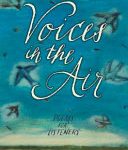 Voices in the air: Poems for listeners
Voices in the air: Poems for listeners
by Naomi Shihab Nye
The nearly 100 poems here were written by Naomi Shihab Nye in honour of the artists, writers, poets, historical figures, and ordinary people from past and present who have inspired her. Full of words of encouragement, solace, and hope, this collection offers a message of peace and empathy. Includes short informational bios about the influential figures behind each poem, and an introduction by the poet.
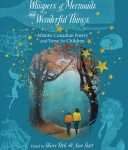 Whispers of mermaids and wonderful things: Children’s poetry and verse from Atlantic Canada
Whispers of mermaids and wonderful things: Children’s poetry and verse from Atlantic Canada
edited by Sheree Fitch and Anne Hunt, illustrated by Lloyd Fitzgerald
Spanning centuries of work from Milton Acorn to Kathleen Winter, and with a broad thematic scope–from soft lullabies to silly, jiggly lyrics, poignant meditations on nature, loss, and love–over 100 poems from Atlantic Canada are sure to delight and young readers everywhere.
by Kwame Alexander
14-year-old twins Josh and Jordan Bell are basketball stars, but their dad’s failing health is taking a toll on their family. Josh relates the highs and lows of his family’s journey in a series of connected poems.
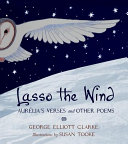 Lasso the wind: Aurélia’s verses and other poems
Lasso the wind: Aurélia’s verses and other poems
written by George Elliott Clarke, illustrated by Susan Tooke
This is is the first collection of children’s poetry by renowned Canadian poet and playwright George Elliott Clarke, the former Parliamentary Poet Laureate. By turns absurd, witty, playful, and profound, Clarke’s poems speak to the vivid wonder, the bright joys, and the secret pains of growing up in this world.
Voices visible: The BCTELA student writing journal, by various authors
These volumes collect poems from young writers from around British Columbia.
Non-Fiction
by Jennifer Fandel
Grades: 1-3
Through examples and exercises, this book shows how young writers can make readers smile, give them goosebumps or the giggles, or even make them cry, all through poetry.
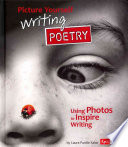 Picture yourself writing poetry: Using photos to inspire writing
Picture yourself writing poetry: Using photos to inspire writing
by Laura Purdie Salas
Grades: 3-6
Poetry is more than rhyming words on a page. A poem is crafted by carefully selecting each word and rhythm. But how does a poet get started? Finding inspiration is as easy as looking at a picture.
by Laura Purdie Salas
Grades: 4-7
You can write about anything in poetry. Whether you want to write poems that make people laugh out loud, gasp in surprise, or see things in a new way, this book is for you. Conquer the blank page and express your thoughts, feelings, and observations through poetry.
Finding More Resources
To find more resources in this area, try the following:
- Search using the General tab on the UBC Library website to look for material in all UBC Library branches.
- Search using “Search Education Resources” box in the left hand bar on the Education Library website to limit your results to materials in the Education Library.
- Use specific search terms to narrow your results, such as “poetry–authorship”, “poetry–study and teaching”, “English language — composition and exercises”, “creative writing”, or “children’s poetry”.
- To find lesson plans, include “lesson plans”, “lesson planning”, or “activity programs” in your search terms.
For more help with searching, please visit the Library Service Desk or e-mail ed.lib@ubc.ca.
